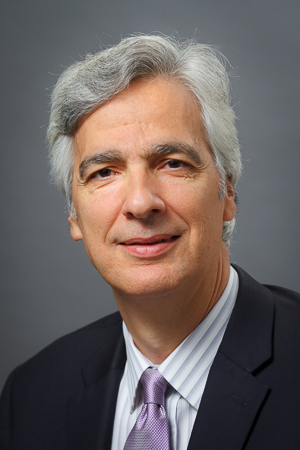Faculty Profile
Marc Mastrangelo
Professor of Classical Studies (1997)Contact Information
Kaufman Hall
717-245-1387
Bio
Prof. Mastrangelo's publications have focused on Early Christian Latin poetry, Greek tragedy, and Greco-Roman intellectual history. He is a co-editor of The Unknown Socrates (Bolchazy-Carducci, 2002) and the author of two books: The Roman Self in Late Antiquity (Johns Hopkins, 2008) and Prudentius' Psychomachia: Introduction, Translation, and Notes (Routledge, 2022). Other publications include: "Towards a Poetics of Late Latin Reuse," in Tradition and Innovation in the Latin Poetry of Late Antiquity (WinterVerlag, 2016); "The Early Christian Response to Platonist Poetics: Boethius, Prudentius, and the Poeta Theologus," in The Poetics of Late Latin Literature (Oxford, 2017); "Nostalgia, Memory, and Emotion In Augustine's Confessions," in Memory and Emotions in Antiquity (de Gruyter, 2024). Prof. Mastrangelo teaches courses at all levels of Classical language and civilization. He is co-founder of Dickinson Classics Online, which publishes resources for Chinese students and scholars of the ancient Greek and Latin classics, and the Humanities Collective at Dickinson. He was Visiting Professor in Anglophone Studies at the Université Jean Jaurès, Toulouse in 2014-15 and is an Honorary Fellow at the Guangqi Center for International Scholars at Shanghai Normal University.
Education
- B.A., Amherst College, 1985
- M.A., Wadham College, Oxford University, 1988
- M.A., Brown University, 1995
- Ph.D., 1996
2025-2026 Academic Year
Spring 2026
CLST 160 Intro to Roman Civilization
Decimation, crucifixion, gladiatorial spectacles, throwing Christians to the lions: the Romans engaged in some truly extreme, bizarre, and cruel practices. Yet they are also famous for roads and infrastructure, art and architecture, poetry, citizen-based self-government, elaborate law codes, and the maintenance of the Roman Peace (Pax Romana) that allowed Christianity to emerge as a political force. This course introduces and explores the paradoxes of ancient Roman culture. Through the study of Rome’s rich literary tradition, we will consider Roman myths, ideas, government, imperialism, urbanism, slavery, religion, sex and marriage, and how these changed over time, from Romulus and Remus (753 BCE) to the fall of the Roman Empire in the West (476 CE). Special attention will be given to those aspects of Roman civilization that have persisted beyond the end of the ancient world.
LATN 202 Introduction to Roman Poetry
Selected readings from Catullus and Ovid, with focus on poetic technique, and discussion of supplementary readings in English.
Prerequisite: 201 or the equivalent. This course fulfills the language graduation requirement.
GREK 234 Greek Tragedy
A play from the corpus of Aeschylus, Sophocles, or Euripides will be read. Readings in English focus discussion on the authors' poetic style, purpose, and the historical context within which the writing occurred.
Prerequisite: 202 or the equivalent. Offered every two years.
